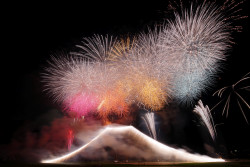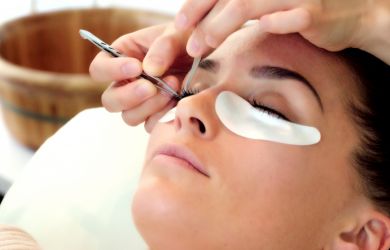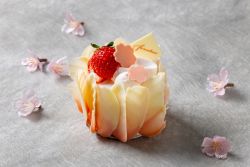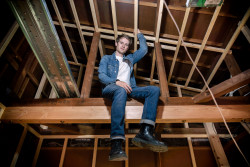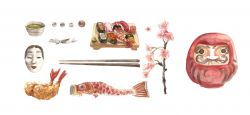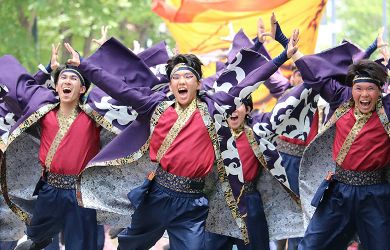
October 28, 2010
Tao Yoga
2,500 years in the making: an ancient practice finds new relevance in modern society
By Metropolis
Originally published on metropolis.co.jp on October 2010

Photos courtesy of Tao Yoga
“So many traditions have left their native soils and are inter-mixing,” says Jesse Lee Parker. “We live in interesting times.” He’s speaking from personal experience: the Austin, Texas native parlayed a youthful obsession with Bruce Lee and martial arts into a 20-year journey through California, Hawaii and Taiwan to remote mountain ranges deep inside China. He was, and still is, following an ancient Chinese philosophy handed down from master to disciple: Taoism.
Tao literally means “the way” in Chinese, and can include such obtuse-sounding practices as “mind-body boxing” and “internal alchemy meditation.” Parker studied the latter in a cave on Mt. Huashan, meditating for many hours a day with mountain ascetics. Dressed all in white, with a beard and long wavy hair, he certainly looks the part of a wandering spirit, but he’s actually remarkably down-to-Earth, even pragmatic.
Having spent a few years in Japan in the late ’90s, Parker returned here last summer to set up a teaching practice. Based in Kamakura, he holds bilingual classes in Tao Yoga—a form of yogic art from the Taoist tradition—and Qigong, along with occasional workshops on self-healing and Taoist meditation.
Parker says he would like to see Taoism enter the global, popular consciousness, in the same way as Buddhism did during the previous century. Enthusiastic about teaching, he hopes to bring Taoist thought and practice to as many people as possible—even if it means tweaking the traditional disciple-master tradition to include Skype lessons and iPhone applications.
 “I’d like to take these arts and present them in a simple, accessible way, transforming them by taking advantage of new technology,” he says. And should purists care to protest, he has a ready answer: “Taoism is about change, so we can look at this as just something new.”
“I’d like to take these arts and present them in a simple, accessible way, transforming them by taking advantage of new technology,” he says. And should purists care to protest, he has a ready answer: “Taoism is about change, so we can look at this as just something new.”
Though the practice of Taoism dates back some two-and-a-half millennia, Parker believes that it has a lot to teach us about our current lifestyles, especially in regard to the stresses of modern urban living. “We are hugely affected by society—our diet, our work,” he says. “These external factors influence us on an emotional level and give rise to negative emotions like fear, depression and anxiety. From a Taoist point of view, these emotions are like thieves, robbing us of our energy and our vitality.”
One function of Tao Yoga is to learn how to transform negative emotions into positive ones. For this, Parker says, “we start with the breath, not the body.” If your image of yoga is one of athleticism, sweat and body-bending poses, Tao Yoga may come as a surprise—and maybe a relief. Parker’s 90-minute classes focus on fundamentals: deep-breathing exercises to relieve tension, and slow, subtle stretches that elongate the body. “They’re really simple exercises, but they’re the result of thousands of years of research,” he explains. “They’re highly refined.”
Moreover, exercises like deep breathing can be done anywhere. “So many changes take place from this simple act: the blood is oxygenated, the body is relaxed,” he says. “You don’t have to have a place or a time to practice breathing. Any time you’re on the train, be mindful of the act of breathing. Inhale, counting one, two, three, four. Exhale doing the same, with deep belly breathing. Think of it as a vacation, not as a practice. This is something pleasurable.”
According to Parker, these exercises also help you put yourself in sync with the natural world: “Nature has a connection to our well-being. There are cycles that exist in nature, and if we can attune ourselves to them, we gain a better sense of energy and vitality.”
Of all the components of Taoism, it is this communion with nature that is the least compatible with modern living, requiring a luxury of time and mobility that the city-bound workforce lacks. Still, the impulse is there. As Parker points out, “Don’t we all want to go to the beach on the weekend?”
For more information, see www.taoyoga.jp/english.
